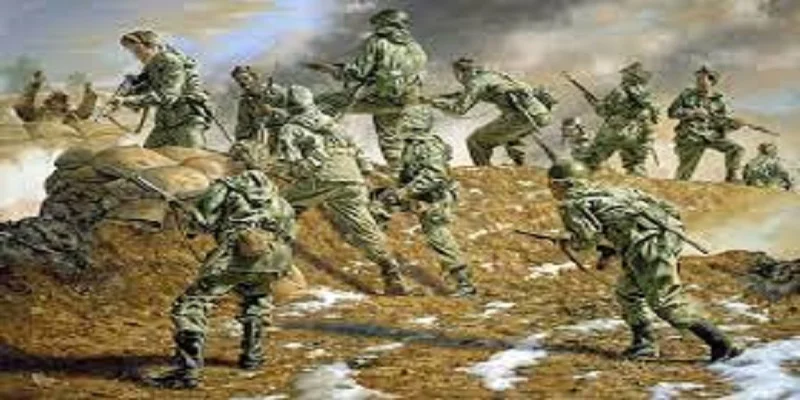Pakistan's Diplomatic Balancing Act: Navigating Opportunities and Challenges During the Korean War
After a long struggle between the All India Muslim League and Muslims of the sub-continent, Pakistan came into being. After the partition, Pakistan emerged as a new Muslim country on the map of the world. In 1950 after three years of independence from Pakistan, South Korea was attacked by North Korea with the help of the USSR; on the hand, the United States of America decided to help South Korea. The Korean War was the first direct military conflict of the Cold War, which took place in a satellite country called Korea. The origins of the Korean War lay in the fact that Korea had been under the control of japan since 1910. In august 1945 Japanese were defeated in World War 2.
Consequently, the Soviet Union and the United States divided the country into two zones along the 38th parallel line, Russia in the north and America in the south. It was called the unification of Korea like Germany, and two independent political dominions were created in the south and north, respectively. Thus South Korea became the Republic of Korea, supported by the United States, while North Korea became the Democratic People s' Republic of Korea and supported by Russia. North Korea attacked South Korea with her allies; later on, Chinese involvement in the War posed a severe challenge to America and her ally South Korea, but in the end, the USA defeated the chines army. Korean War ended in 1953, and the USA came out victorious and successfully continued the containment policy because Russia failed to spread its communist ideology in South Korea.
Implications for Pakistan.
It was a bizarre situation for Pakistan because this event entailed opportunities and challenges for Pakistan. Pakistan joined the United Nations in 1947 and voted for the general assembly resolution authorizing the UN operation for the defense of South Korea. United Nations called upon members to contribute to the UN action. Pakistan decided against sending military assistance, as dictated by her interests. However, it led Pakistan to lay the foundations of a foreign policy resting primarily on short-term policies. It subsequently altered Pakistan's desperately West-oriented and West-dependent foreign policy, laid by Liaquat Ali Khan's decision to accept the American invitation to pay an official visit to Washington and neglect an earlier invitation from the Soviet Union for a similar visit. Pakistan's foreign policy still accounts for why Liaquat Ali opted for Washington and ignored Moscow. Doctors toeing the establishment line have argued, excitedly, that it was a decision driven by logic and national interest. Pakistan needed an early injection of military assistance to narrow the gap with a much stronger India; the US was the only power capable at that stage, so close to the end of World War II, to provide that kind of material help to Pakistan. The Soviet Union was still licking its wounds of a war that had exacted a horrendous toll on 20 million people and could not come to Pakistan's assistance.
Economic importance of the War for Pakistan
Korean War had a profound impact on the economy of Pakistan because Pakistan refused to devalue the currency as compared to India. Between 1947-1952 Pakistan's average GDP was just 3%; however, in 1952, War broke out, and the overall demand for goods increased worldwide, especially wheat, cotton, and jute. Pakistan benefited significantly, with its GDP increasing at a screaming rate of 9.4%. However, after the end of the Korean War, there was a worldwide slump.
From the early days of Pakistan s' creation, Muhammad Ali Jinnah, the founder, clearly spoke in his speeches that we want friendly and peaceful relations with the entire nations of the world. So Korean War had a significant influence on Pakistan s foreign policy, and she allied with the USA. Still, she did not receive the expected military and economic aid, and the US response was doubtful and inadequate. Liaquat Ali khan made a brave decision by refusing the American call for participation in the War. However, the state's economy got a boost, which otherwise would have taken a long time.

